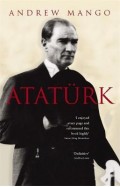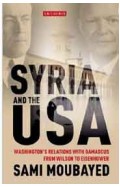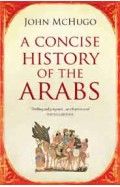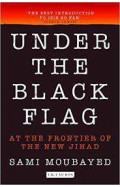An Army Like No Other: How the Israel Defense Force Made a Nation
By: Haim Bresheeth Zabner
-
Rs 7,036.00
- Rs 8,795.00
- 20%
You save Rs 1,759.00.
Due to constant currency fluctuation, prices are subject to change with or without notice.
The Israeli army, officially named the Israel Defence Forces (IDF), was established in 1948 by David Ben-Gurion, Israel's first prime minister, who believed that 'the whole nation is the army'. In his mind, the IDF was to be an army like no other. It was the instrument that might transform a diverse population into a new people. Since the foundation of Israel, therefore, the IDF has been the largest, richest and most influential institution in Israel's Jewish society and is the nursery of its social, economic and political ruling class.
In this fascinating history, Bresheeth charts the evolution of the IDF from the Nakba to the continued assaults upon Gaza, and shows that the state of Israel has been formed out of its wars. He also gives an account of his own experiences as a young conscript during the 1967 war. He argues that the army is embedded in all aspects of daily life and identity. And that we should not merely see it as a fighting force enjoying an international reputation, but as the central ideological, political and financial institution of Israeli society. As a consequence, we have to reconsider our assumptions on what any kind of peace might look like.
The Israeli army, officially named the Israel Defence Forces (IDF), was established in 1948 by David Ben-Gurion, Israel's first prime minister, who believed that 'the whole nation is the army'. In his mind, the IDF was to be an army like no other. It was the instrument that might transform a diverse population into a new people. Since the foundation of Israel, therefore, the IDF has been the largest, richest and most influential institution in Israel's Jewish society and is the nursery of its social, economic and political ruling class.
In this fascinating history, Bresheeth charts the evolution of the IDF from the Nakba to the continued assaults upon Gaza, and shows that the state of Israel has been formed out of its wars. He also gives an account of his own experiences as a young conscript during the 1967 war. He argues that the army is embedded in all aspects of daily life and identity. And that we should not merely see it as a fighting force enjoying an international reputation, but as the central ideological, political and financial institution of Israeli society. As a consequence, we have to reconsider our assumptions on what any kind of peace might look like.
An Army Like No Other: How the Israel Defense Force Made a Nation
By: Haim Bresheeth Zabner
Rs 7,036.00 Rs 8,795.00 Ex Tax :Rs 7,036.00
Zubin Mehta: A Musical Journey (An Authorized Biography)
By: VOID - Bakhtiar K. Dadabhoy
Rs 472.50 Rs 1,050.00 Ex Tax :Rs 472.50
The Selected Works of Edward Said - 1966-2006
By: Edward Said
Rs 3,436.00 Rs 4,295.00 Ex Tax :Rs 3,436.00
The Israel Lobby And Us Foreign Policy
By: John J. Mearsheimer
Rs 2,636.00 Rs 3,295.00 Ex Tax :Rs 2,636.00
Mossad The Greatest Missions of the Israeli Secret Service
By: Michael Bar-Zohar
Rs 3,036.00 Rs 3,795.00 Ex Tax :Rs 3,036.00
Inside Egypt The Road to Revolution in the Land of the Pharaohs
By: John R. Bradley
Rs 2,747.25 Rs 4,995.00 Ex Tax :Rs 2,747.25
What Went Wrong?: Western Impact and Middle Eastern Response
By: Bernard Lewis
Rs 1,556.75 Rs 2,395.00 Ex Tax :Rs 1,556.75
Syria and the USA: Washingtons Relations with Damascus from Wilson to Eisenhower
By: Sami Moubayed
Rs 832.50 Rs 1,850.00 Ex Tax :Rs 832.50
Soldier Sahibs The Men Who Made the NorthWest Frontier
By: Charles Allen
Rs 1,686.75 Rs 2,595.00 Ex Tax :Rs 1,686.75
Under the Black Flag At the Frontier of the New Jihad
By: Sami Moubayed
Rs 717.75 Rs 1,595.00 Ex Tax :Rs 717.75
Jezebel The Untold Story of the Bibles Harlot Queen
By: Lesley Hazleton
Rs 2,556.00 Rs 3,195.00 Ex Tax :Rs 2,556.00
Eat Your Heart Out: Who Really Decided What Ends Up On Your Plate
By: Felicity Lawrence
Rs 357.75 Rs 795.00 Ex Tax :Rs 357.75
The Selected Works of Edward Said - 1966-2006
By: Edward Said
Rs 3,436.00 Rs 4,295.00 Ex Tax :Rs 3,436.00
The Israel Lobby And Us Foreign Policy
By: John J. Mearsheimer
Rs 2,636.00 Rs 3,295.00 Ex Tax :Rs 2,636.00
Mossad The Greatest Missions of the Israeli Secret Service
By: Michael Bar-Zohar
Rs 3,036.00 Rs 3,795.00 Ex Tax :Rs 3,036.00
No recently viewed books available at the moment.
Zubin Mehta: A Musical Journey (An Authorized Biography)
By: VOID - Bakhtiar K. Dadabhoy
Rs 472.50 Rs 1,050.00 Ex Tax :Rs 472.50
An Army Like No Other: How the Israel Defense Force Made a Nation
By: Haim Bresheeth Zabner
Rs 7,036.00 Rs 8,795.00 Ex Tax :Rs 7,036.00
The Selected Works of Edward Said - 1966-2006
By: Edward Said
Rs 3,436.00 Rs 4,295.00 Ex Tax :Rs 3,436.00
The Israel Lobby And Us Foreign Policy
By: John J. Mearsheimer
Rs 2,636.00 Rs 3,295.00 Ex Tax :Rs 2,636.00
Mossad The Greatest Missions of the Israeli Secret Service
By: Michael Bar-Zohar
Rs 3,036.00 Rs 3,795.00 Ex Tax :Rs 3,036.00











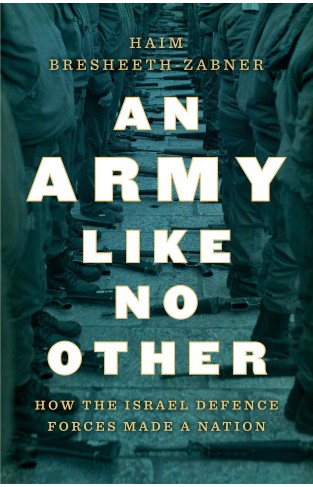
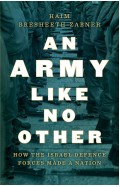
-120x187.jpg?q6)








